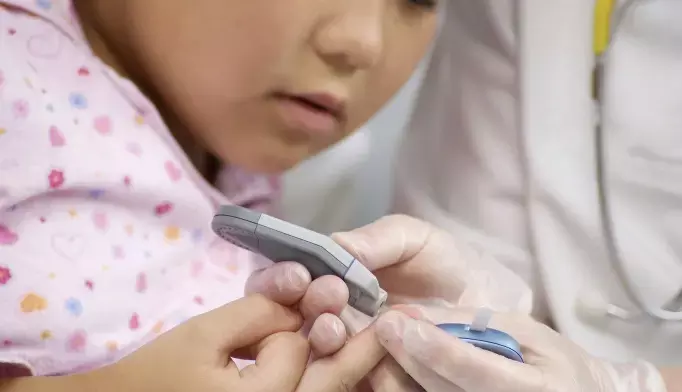- Home
- Medical news & Guidelines
- Anesthesiology
- Cardiology and CTVS
- Critical Care
- Dentistry
- Dermatology
- Diabetes and Endocrinology
- ENT
- Gastroenterology
- Medicine
- Nephrology
- Neurology
- Obstretics-Gynaecology
- Oncology
- Ophthalmology
- Orthopaedics
- Pediatrics-Neonatology
- Psychiatry
- Pulmonology
- Radiology
- Surgery
- Urology
- Laboratory Medicine
- Diet
- Nursing
- Paramedical
- Physiotherapy
- Health news
- Fact Check
- Bone Health Fact Check
- Brain Health Fact Check
- Cancer Related Fact Check
- Child Care Fact Check
- Dental and oral health fact check
- Diabetes and metabolic health fact check
- Diet and Nutrition Fact Check
- Eye and ENT Care Fact Check
- Fitness fact check
- Gut health fact check
- Heart health fact check
- Kidney health fact check
- Medical education fact check
- Men's health fact check
- Respiratory fact check
- Skin and hair care fact check
- Vaccine and Immunization fact check
- Women's health fact check
- AYUSH
- State News
- Andaman and Nicobar Islands
- Andhra Pradesh
- Arunachal Pradesh
- Assam
- Bihar
- Chandigarh
- Chattisgarh
- Dadra and Nagar Haveli
- Daman and Diu
- Delhi
- Goa
- Gujarat
- Haryana
- Himachal Pradesh
- Jammu & Kashmir
- Jharkhand
- Karnataka
- Kerala
- Ladakh
- Lakshadweep
- Madhya Pradesh
- Maharashtra
- Manipur
- Meghalaya
- Mizoram
- Nagaland
- Odisha
- Puducherry
- Punjab
- Rajasthan
- Sikkim
- Tamil Nadu
- Telangana
- Tripura
- Uttar Pradesh
- Uttrakhand
- West Bengal
- Medical Education
- Industry
High fasting sugar levels increase risk of gastric cancer in postmenopausal women: Study

High fasting glucose has been indicated in relation to a higher risk of gastric cancer (GC), but the majority of studies have focused on diabetes (fasting glucose {greater than or equal to} 126 mg/dL).
In a new study, the researchers led by Tao Thi Tran investigated whether fasting glucose levels, including prediabetic and diabetic levels, influence gastric cancer (GC), incidence
They found that high fasting glucose levels are associated with the development of gastric cancer (GC) in postmenopausal women.The results of the study provide evidence for future planning and management regarding cancer prevention.
High fasting glucose levels have been linked to an increased risk of gastric cancer GC, however the bulk of investigations have concentrated on diabetes (fasting glucose levels more than or equal to 126 mg/dL).
The researchers wanted to know if fasting glucose levels, including prediabetic and diabetic levels, impact GC incidence. The findings of this study were published in the American Association for Cancer Research on 10th November, 2021.
From August 2002 to December 2014, 41,837 individuals aged 16 and above completed health checkups at the National Cancer Center in South Korea. Participants were tracked till December 2017 in order to discover incident GC instances. A fasting glucose test was done using venous blood samples collected from subjects following an 8-hour fast. The Cox proportional hazards regression model was used to investigate the relationship between fasting glucose levels and GC incidence.
During the follow-up phase, the researchers discovered 263 incident GC cases. High fasting glucose levels were observed to have a significant connection with GC incidence in post-menopausal women. There was also a significant link between high fasting glucose and GC incidence among all nonsmokers with a BMI of 25 kg/m2 and no first-degree family history of GC.
In conclusion the Author added that the findings of this study give evidence for future cancer prevention planning and management
Reference: Influence of fasting glucose level on gastric cancer incidence in a prospective cohort study. Tao Thi Tran, Jeonghee Lee, Madhawa Gunathilake, Hyunsoon Cho and Jeongseon Kim Cancer Epidemiol Biomarkers Prev November 10 2021 DOI: 10.1158/1055-9965.EPI-21-0670
Medical Dialogues consists of a team of passionate medical/scientific writers, led by doctors and healthcare researchers. Our team efforts to bring you updated and timely news about the important happenings of the medical and healthcare sector. Our editorial team can be reached at editorial@medicaldialogues.in.
Dr Kamal Kant Kohli-MBBS, DTCD- a chest specialist with more than 30 years of practice and a flair for writing clinical articles, Dr Kamal Kant Kohli joined Medical Dialogues as a Chief Editor of Medical News. Besides writing articles, as an editor, he proofreads and verifies all the medical content published on Medical Dialogues including those coming from journals, studies,medical conferences,guidelines etc. Email: drkohli@medicaldialogues.in. Contact no. 011-43720751


